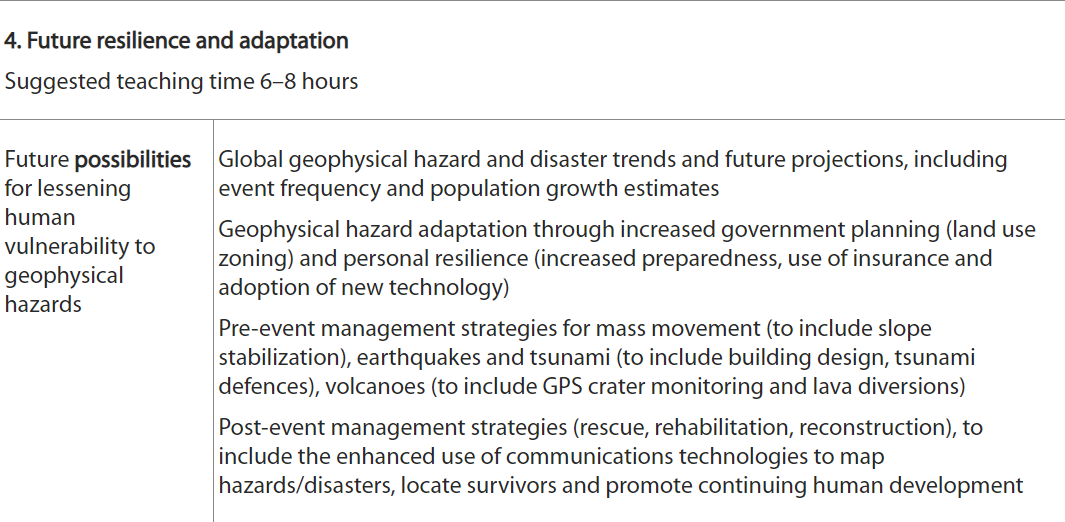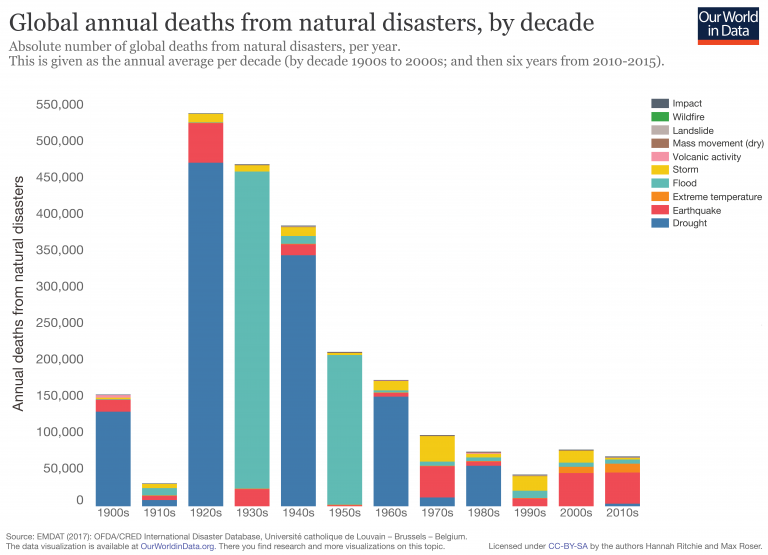Study the images below and describe:
- Trends in natural disasters (economic, social and frequency).
- How might these trends influence population growth rates?
Geophysical hazard adaption
1. Government planning: Land use zoning
- What is Land Use planning?
- How does it attempt to reduce the risk or hazards.
- How do building regulations increase peoples resilience.
- Explain using examples how we can use land use zoning to reduce flood risk.
- Explain using examples how we can use land use zoning to reduce volcanic risk.
|
|
|
Your browser does not support viewing this document. Click here to download the document.
| building_regulation_for_resilience_managing_risks_for_safer_cities.pdf | |
| File Size: | 829 kb |
| File Type: | |
Your browser does not support viewing this document. Click here to download the document.
| reducing_volcanic_risk_through_land_use_planning.pdf | |
| File Size: | 1267 kb |
| File Type: | |
2. Personal resilience: Insurance
- How does insurance increase resilience?
- Giving examples explain how earthquake insurance works.
- What are some of the advantages and disadvantages of Earthquake insurance?
- Giving examples explain how flood insurance works?





